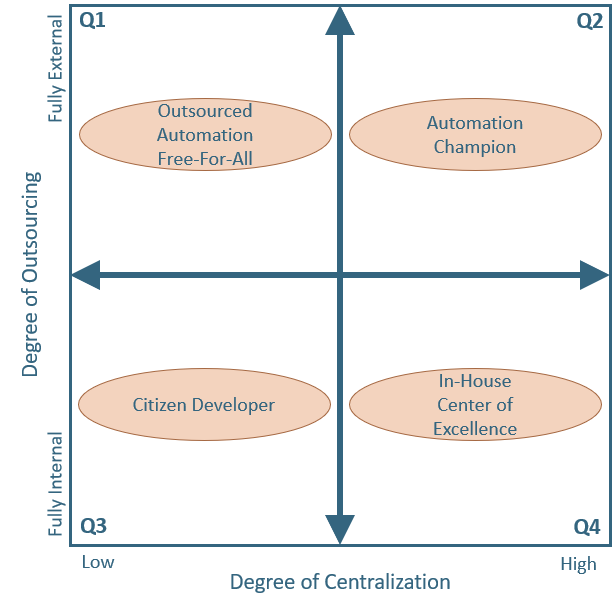Why is automation such a buzzword these days? It all comes down to the fact that the way we work is changing. In fact, the nature of work itself is changing. Old jobs are disappearing, and new ones are constantly being created. Two major drivers of this seismic shift in the employment landscape are unavoidable demographic changes and our ever-increasing ability to automate tasks.
In the U.S. alone, the retirement of the baby boomer generation will have a huge impact. Despite their tendency to continue working longer than previous generations, boomers are projected to leave the workforce faster than they can be replaced for at least the next decade. The resulting gap in the labor force (in terms of warm bodies and more importantly in irreplaceable institutional knowledge and experience) is driving employers to find new ways to maintain productivity.
Serendipitously, technological advances have been opening up possibilities that were unimaginable a few short years ago. It is estimated that 45% of all activities performed in the workplace can theoretically be automated using technologies available today. As technical advances continue, this number will increase, and the barriers separating technical feasibility and practical opportunity will become ever-more surmountable.
Considering these two factors together, we should expect automation to expand rapidly outward from its well-established strongholds (e.g. manufacturing) and into the digital arena. Though the potential benefits of digital automation are enormous, it is not a magic bullet; it cannot solve every problem faced by businesses, and it is far from foolproof.
What Digital Automation is NOT
Digital automation is not a simple plug-and-play proposition. A successful implementation is dependent on the careful consideration of many factors. The development of a deployment strategy is one very important aspect that is frequently overlooked or given short-shrift. This strategy can be thought of as the overarching approach to an automation initiative within an organization. The old adage ‘failing to plan is planning to fail’ is appropriate here. Having a defined strategy will help align on the role of automation in the organization moving forward. A strategy will help you leverage synergies and integrations and minimize redundant work.
3 Prerequisites for Digital Automation
Regardless of the specifics of your selected strategy, a successful digital automation initiative has three organizational prerequisites:
-
Leadership must foster a culture of innovation. Leaders must actively promote innovation and continuous improvement to counteract institutional inertia and complacency.
-
There must be a baseline of digital competency and process understanding. Personnel must have some basic understanding of the capabilities of technology and the current state processes within the business to be able to support an automation initiative.
-
There must be consistent and effective communication throughout the organization. This will help to ensure alignment, to prevent working at cross-purposes, and to avoid silos within the organization.
Two Levers Critical for a Digital Automation Strategy: Centralization and Outsourcing
In the absence of any of the three conditions, automation becomes exponentially more difficult and fraught with additional risk. Bearing this in mind, let’s explore two major levers to consider while developing an automation strategy — the degree of centralization and the degree of outsourcing. Visualize this using the matrix below:

Strategies that rely heavily on outsourcing tend to have certain similarities. They will generally offer a rapid ramp-up process, meaning once the decision is made to automate a task the project execution moves rapidly. Along similar lines, there is little need to train resources to develop automations in-house. By their nature, these strategies also require the ability to pay significant professional services fees, and they create a significant dependency upon at least one third party outside of the organization’s control.
On the other end of the outsourcing axis, strategies based on building internal capabilities neatly avoid such critical dependencies and generally require minimal professional service fees. The drawbacks of these internal strategies are typically associated with the time and expense required to up-skill employees and to develop in-house automation capabilities. Also, as a rule, a higher level of digital proficiency is required of the resources within an organization that plans to automate tasks internally.
Highly centralized strategies characteristically offer a high degree of control over quality, consistency and risks. Additionally, the proximity of center-led automation projects to upper management or to the leadership team affords the ability to ensure alignment with other organizational strategies and objectives and to clearly and concisely communicate this out to all relevant stakeholders in the organization. The classic drawback associated with these strategies is the slow pace of implementation. Common sources of delay are bureaucratic roadblocks, office politics and resourcing bottlenecks. Decentralized strategies on the other hand tend to have an inverse set of characteristics — though they offer greater bandwidth, faster implementation speeds, and increased agility and flexibility relative to centralized strategies, they are more challenging to implement while ensuring alignment and effective communication throughout the organization. Similarly, controlling risks and maintaining consistent levels of quality can be difficult with many independent projects proceeding concurrently. Finally, decentralized models are generally more reliant on the digital competency of the non-leadership members the organization.
Selecting the appropriate digital automation strategy comes down to carefully considering your particular circumstances, and ensuring alignment with the overarching culture and strategy of your organization. Actively promulgating your digital automation strategy within your organization will leave you well positioned to leverage the powerful automation tools on the market today, and to fully realize the myriad benefits they have to offer.
Contact John Cavalier at jcavalier@cohenco.com or a member of your service team to discuss this topic further.
Cohen & Co is not rendering legal, accounting or other professional advice. Information contained in this post is considered accurate as of the date of publishing. Any action taken based on information in this blog should be taken only after a detailed review of the specific facts, circumstances and current law.